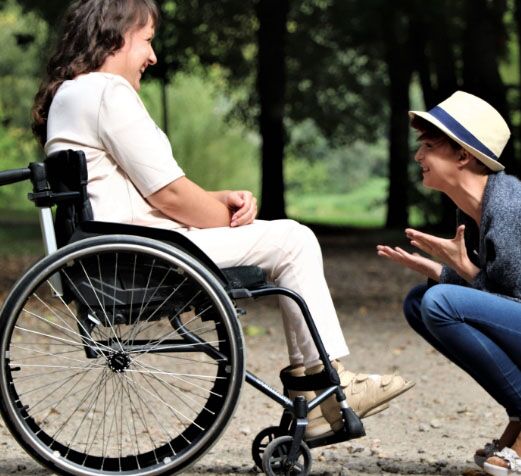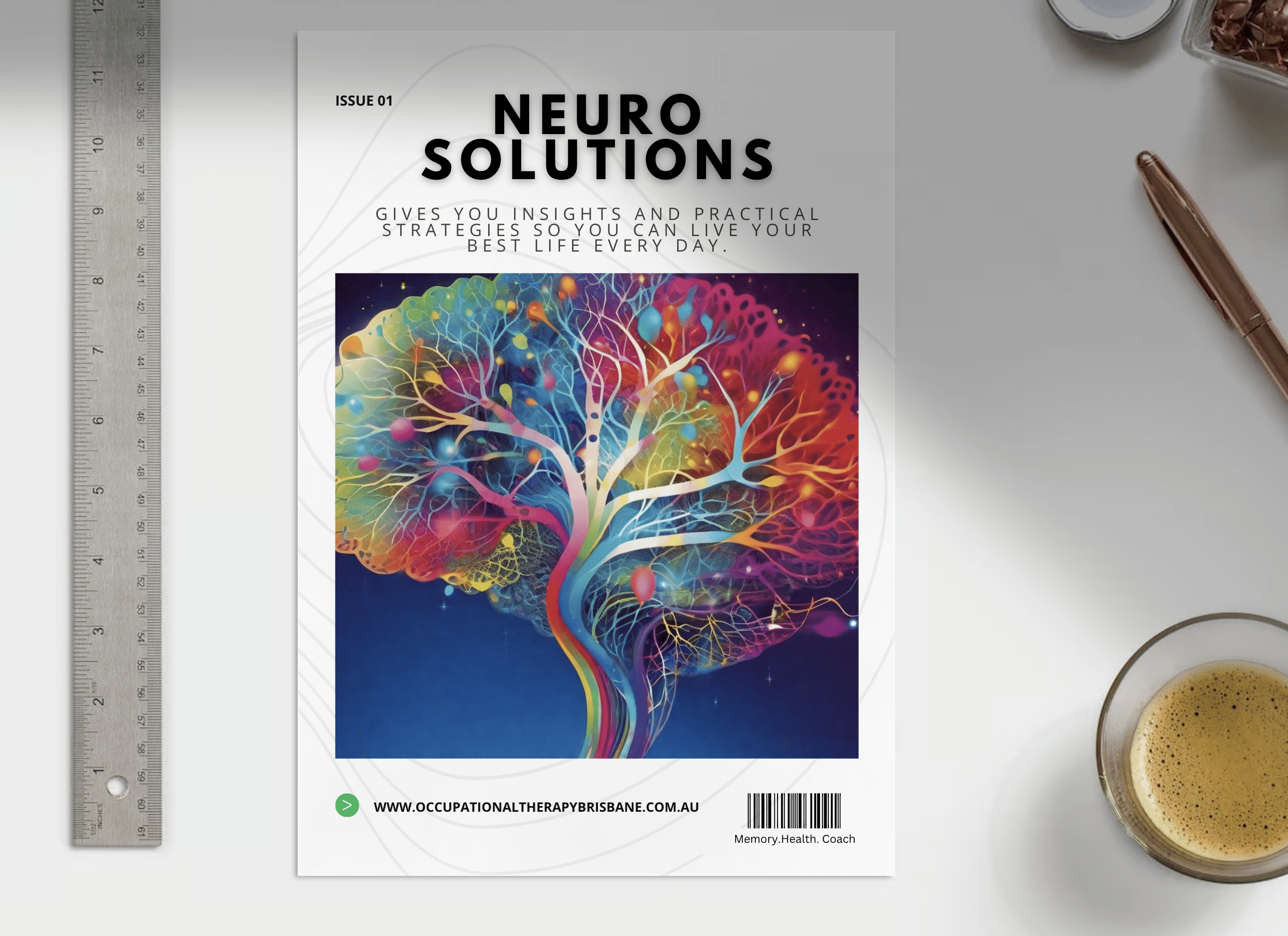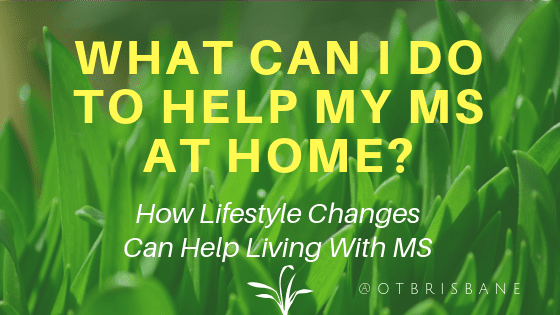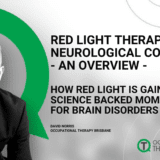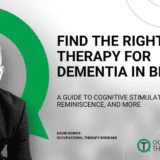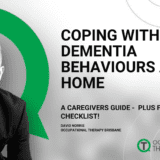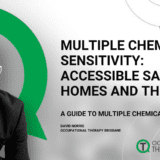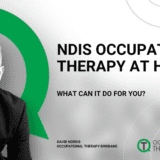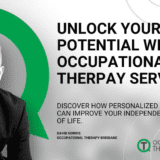What Can I Do To Help My MS At Home
There is an emerging interest in the role of lifestyle intervention for neurological conditions and MS being one of these conditions gaining more media attention. In this article we discuss emerging MS Lifestyle Interventions and Research with a special focus on answering what I can do to help my MS at home.
The world is seeing an increase in MS diagnoses – about three-quarters of them women but there are differences between regions for example between Australia and Japan ( MS Paris 2017).
In this article we refer to the work of Professor George Jelinek, a pioneer into lifestyle interventions for MS, which gratefully has drawn more research attention into the role of lifestyle medicine and the effect it has on reducing risk associated with MS.
So, What Can I Do To Help My MS At Home?
It’s worth declaring right up front, according to the MS Research Australia, “everyone’s MS and their individual circumstances are different meaning that the treatment and management of their disease is also very individual. Therefore any lifestyle changes are likely to be needed to be done in combination with the appropriate MS medications as recommended by their neurologist.”
The concern here is that you want to ensure that the changes you make do not lead to nutritional, energy or functional deficiencies.
Aside from the tailored personalised medicine regimes which are matched to your unique presentation, according to the Mayo Clinic there are a number of lifestyle factors which can be used to answer ” What can I do to help my MS at home”
Here’s 5 Factors To Help Manage Your MS At Home
- Recover, and quarantine your energy. Get plenty of rest.
- Exercise. If you have mild to moderate MS, regular exercise can help improve your strength, muscle tone, balance and coordination. Some time this is a balance of energy conservation and the right amount of exercise
- Keep Cool – easier said than done especially in Australia. MS symptoms often worsen when your body temperature rises.
- Eat a healthy balanced diet.
- Reduce or mitigate stress.
Source: Mayo Clinic: MS Resources
Sounds straight forward right?
As an occupational therapy service we look at these factors as well as how can we modify people ( fitness, cognition skills, movement), the tasks or environments to support a person living with MS. An occupational therapy assessment with people living with MS is all about supporting you to be as independent as possible, and to help you keep doing what you love be at home, work and in your hobbies or leisure tasks.
So an OT may help you choose and use the personal program, right equipment, home and work modifications to support you in all the everyday tasks which are important to you.
Here are common challenges an OT may address:
- Challenges to getting around home
- Difficulty moving on and off surfaces be it chair, bed or cars.
- Fluctuating levels of fatigue
- Frustration with using everyday items
- Changes with memory, pain and vision
You can read more about how an OT may work with you here.
Can Diet And Exercise Help With MS?
According to the National MS Society, Exercise, sleep and a low-salt diet may be part of the solution for multiple sclerosis patients. There is also further referecne to the expanding research into the areas of lifestyle, diet and exercise, even including salsa dancing!
What does a balanced diet mean for MS?
“Balanced Diet” is a diet consisting of a variety of different types of food and providing adequate amounts of the nutrients necessary for good health.
Health Direct provides a good summary of the Eat for Health Australian Dietary Guidelines, It’s a simple set of guidelines from qualified experts to make eating a balanced diet easy, nutritious, healthy and yummy food.
Free Poster: Download of the Eat for Health Australian Dietary Guidelines here.
But is this enough, does it address the issues which may be underpinning MS?
MS Research Australia describes the spread of research and clinical opinion on nutrition and its impact on MS progression. You can read more here. The article also describes the emerging evidence, specifically, lifestyle medicine.
What Are The Benefits of Lifestyle Changes and MS
There is certainly strong evidence supporting the link between smoking and the increase risk of MS Progression. This was reported in the Journal of Neurological Sciences and proudly completed by the team at the Gold Coast Hospital.
What About The Leading Edge of Lifestyle Intervention for MS
The work of Professor George Jelinek’s emerges from a personal story of living with MS and a family history of MS. He has established a thorough evidence base to lifestyle interventions for MS and has established OvercomingMS.org which documents the evidence and personal journeys of others.
Overcoming Multiple Sclerosis is Prof Jelinek’s work arising from an exhaustive analysis of medical research when he was first diagnosed with MS in 1999. Overcoming Multiple Sclerosis explains the nature of MS and outlines an evidence-based 7 step program for recovery.
In 2012 Prof Jelinek completed a survey of people who completed his own lifestyle MS program involving 2519 people with MS, aged 18 to 87, from 57 different countries.
Here is what the study observed
- Participants with the diets low in saturated fats, eating a broadly plant based as well as eating fish three or more times a week had a significant reduction in their risk of experiencing disability in the order of 70%.
- People who took flaxseed oil were observed to have a 42% lowered risk of disability
- Taking the group of daily flaxseed oil consumers they experienced more than 60 per cent fewer relapses than those not taking it (regardless of fish intake),
- The 3x (plus) weekly fish eaters were observed to have more than 50 per cent fewer relapses.
Whilst the level of evidence is not without bias it paints a picture that Lifestyle Interventions may be an important tool in the treatment of MS. Excitingly, there is a large study, the Australian MS Longitudinal Study which will explore lifestyle benefits and MS in partnership with Prof. Jelink. So, watch this space as results of the study emerge.
Source: OptimisingMS.org
MS – What is it?
Approximately 25,600 Australians are living with MS.
It’s caused when the body’s immune system malfunctions and starts to attack the fatty coating, or myelin, that protects nerve fibres, interrupting messages between brain and body. This creates a host of symptoms, including loss of vision and mobility, cognitive decline and intense fatigue.
In MS, the body’s own immune system mistakenly attacks and damages the fatty material “ the insulation” – called myelin – around the nerves. Myelin is has a critical role in protecting and insulating nerves. This allows for speedy and efficient transmission of electrical signals along the nerves from one to another and from the brain to the rest of the body.
A person may experience pain, sensory, movement and cognitive changes. The symptoms of MS are widely variable for all individuals and this can change over time. So it’s worth being aware how MS affects one person will be different to the next.
There is no known single cause of MS, but many genetic and environmental factors have been shown to contribute to its development.
Types of MS
- Relapsing remitting MS (RRMS) is the most common form of MS; it is characterised by flare-ups of the neurological symptoms of MS. This is where attacks, or relapses, are followed by periods of recovery, partial or total;
- Secondary Progressive (SPMS) is a secondary phase of relapsing remitting MS that can develop years, or even decades later.
- Primary Progressive (PPMS), impacts about 10- 15% of people living with MS and is experienced as a steady course of decline from the outset; and
- There is an observed 4th or subtype of PPMS and that is called Progressive Relapsing (PRMS), where a continuous decline is punctuated by severe flare-ups.
Source: MS Research Australia , National MS Society
Living With MS? Here’s How Occupational Therapy Brisbane May Help You
Our goal is all about supporting you to be as independent as possible to keep participating at home, work and in the community. This includes developing strategies to manage symptoms, prescribing assistive technology or designing home modifications as well as lifestyle solutions to help you reduce your risk of MS disability as much as possible.
If you’re frustrated by your day to day challenges of living with MS and are seeking practical everyday life strategies, we’d like to help. We work with people supported by the NDIS, Medicare, DVA or Privately. If you’re interested, please call us to book a complimentary 15 minute consultation with a senior therapist to discussion your needs and goals. Call 1300 783 200 today or complete the online form here
Sources
- Mayo Clinic: MS Resources : https://www.mayoclinic.org/diseases-conditions/multiple-sclerosis/diagnosis-treatment/drc-20350274
- National MS Society: https://www.nationalmssociety.org/
- MS and Nutrition: https://msra.org.au/news/research-lifestyle-benefits-people-ms/
- MS Research Australia: https://msra.org.au/
- MS and Lifestyle Interventions: sra.org.au/news/research-lifestyle-benefits-people-ms/
- Overcoming Multiple Sclerosis by Professor George Jelinek: https://overcomingms.org/
- Overcoming MS (research): https://overcomingms.org/news-research/news/
- Smoking increases the risk of progression in multiple sclerosis: A cohort study in Queensland, Australia.Journal of Neurological Sciences: https://www.ncbi.nlm.nih.gov/pubmed/27772763
Disclaimer
This site and its contents are provided to you on an “as is” basis, the site may contain errors, faults and inaccuracies and may not be complete and current.
Occupational Therapy Brisbane makes no representations or warranties of any kind, express or implied as to the operation of this site or the information, content, materials or products included on this site, except as otherwise provided under applicable laws.
Neither Occupational Therapy Brisbane, Get Healthcare Direct Pty Ltd nor its affiliates, directors, officers, employees, agents, contractors, successors or assigns will be liable for any damages whatsoever arising out of, or in any way related to, the use of this site and any other site linked to this site. This limitation applies to direct, indirect, consequential, special, punitive or other damages you or others may suffer, as well as damages for loss of profits, business interruption or the loss of data or information.
The information is provide as health promotional material with the aim to support people to access right information at the right time. Should you need assistance please consult your medical professional or occupational therapist


